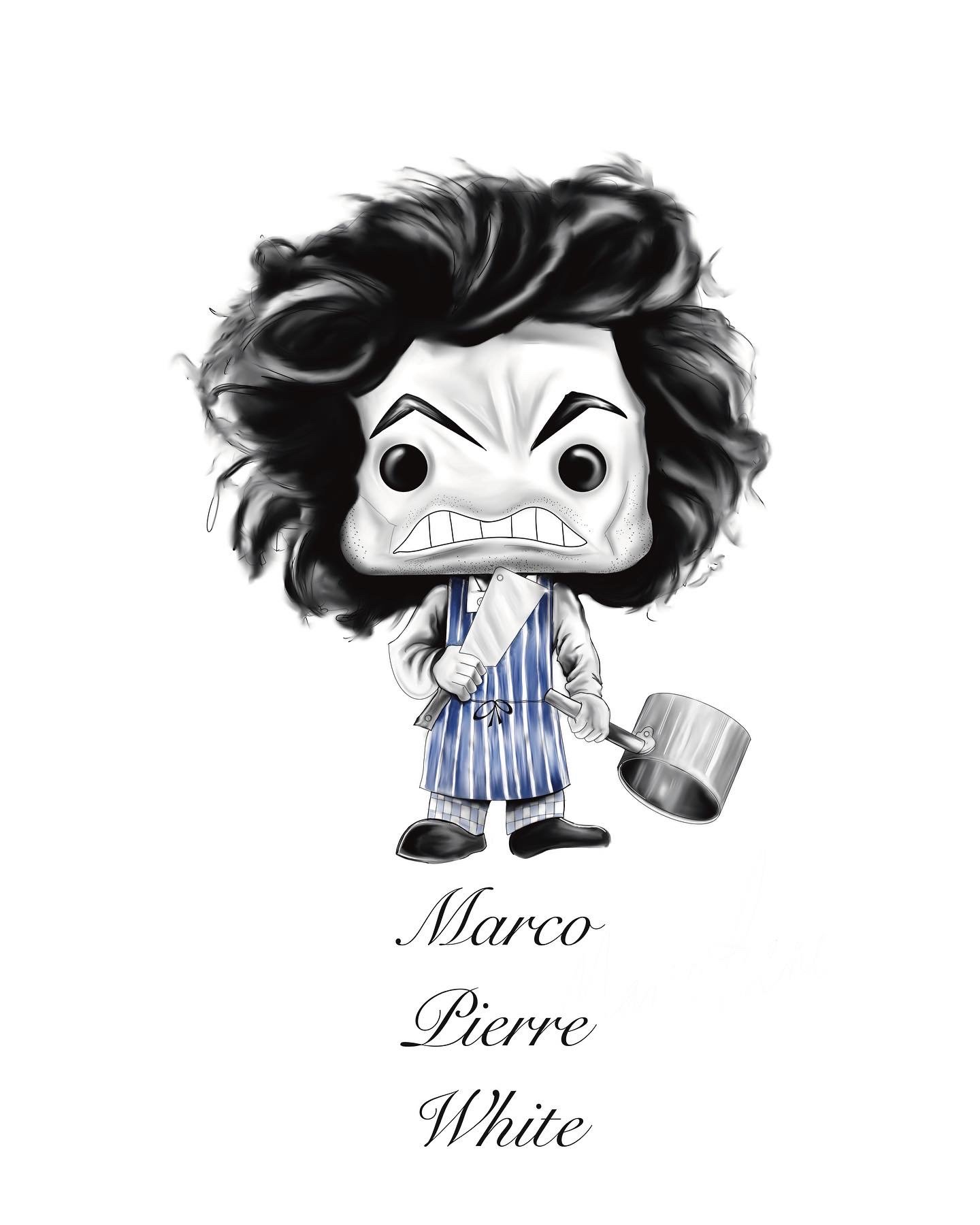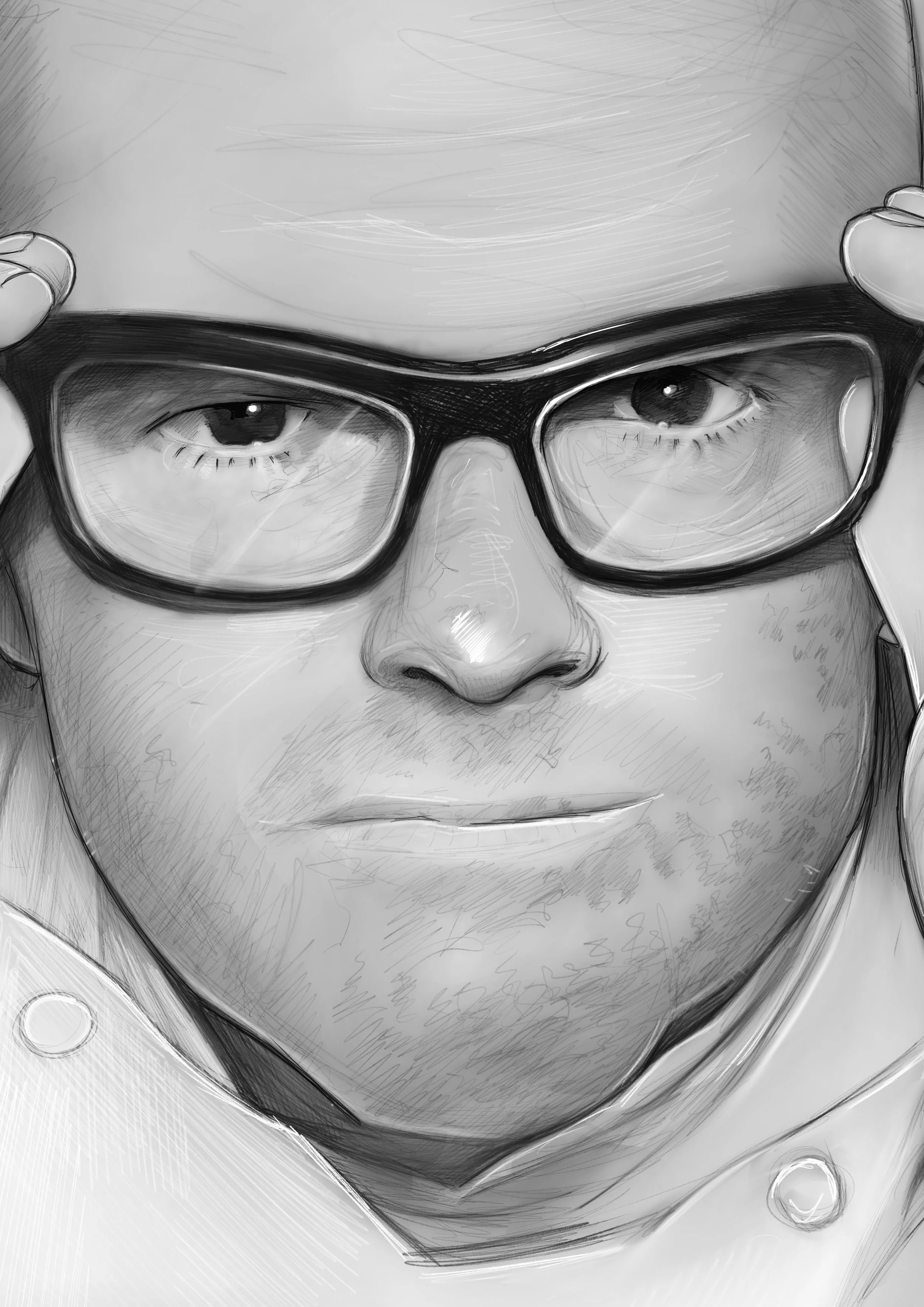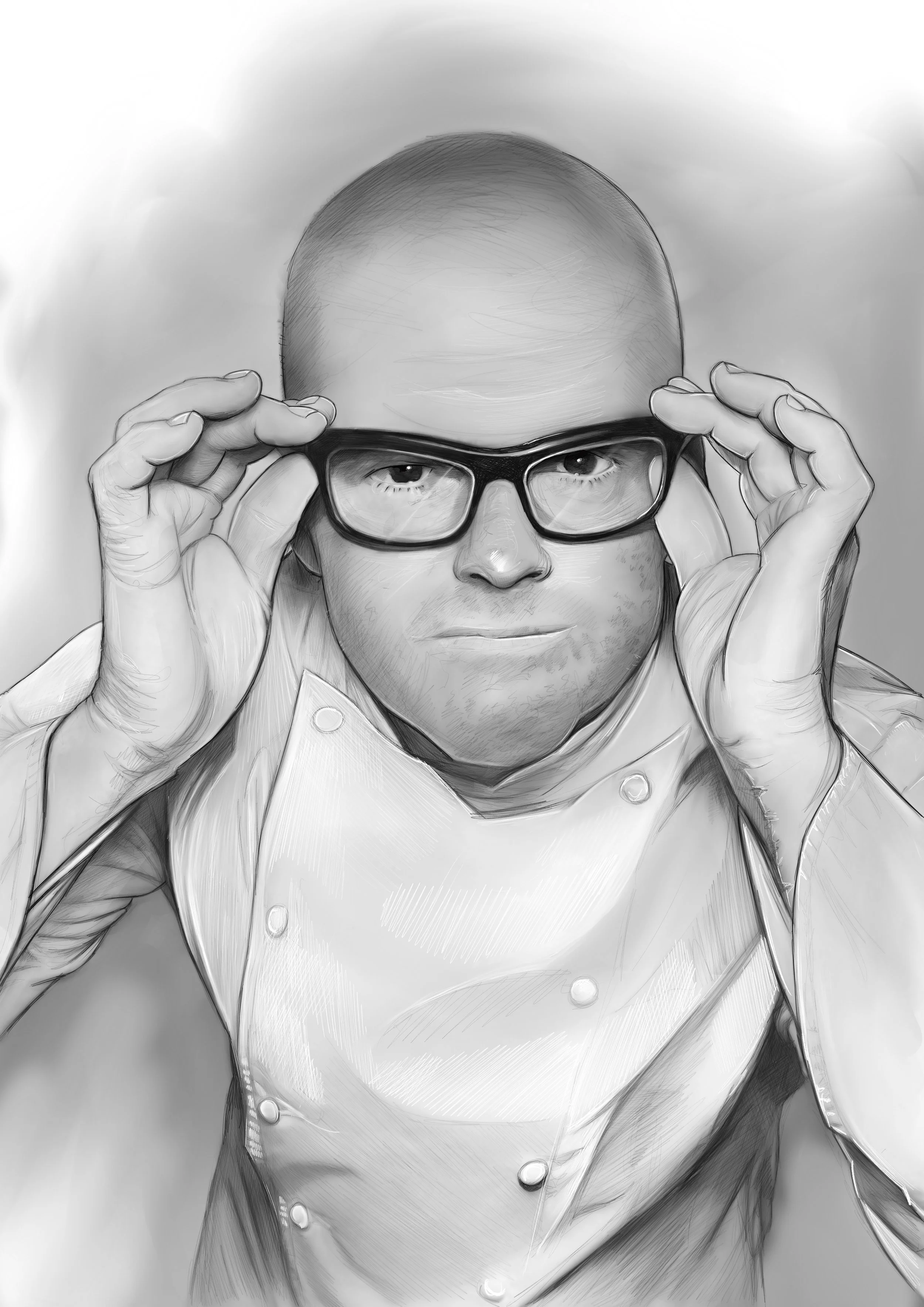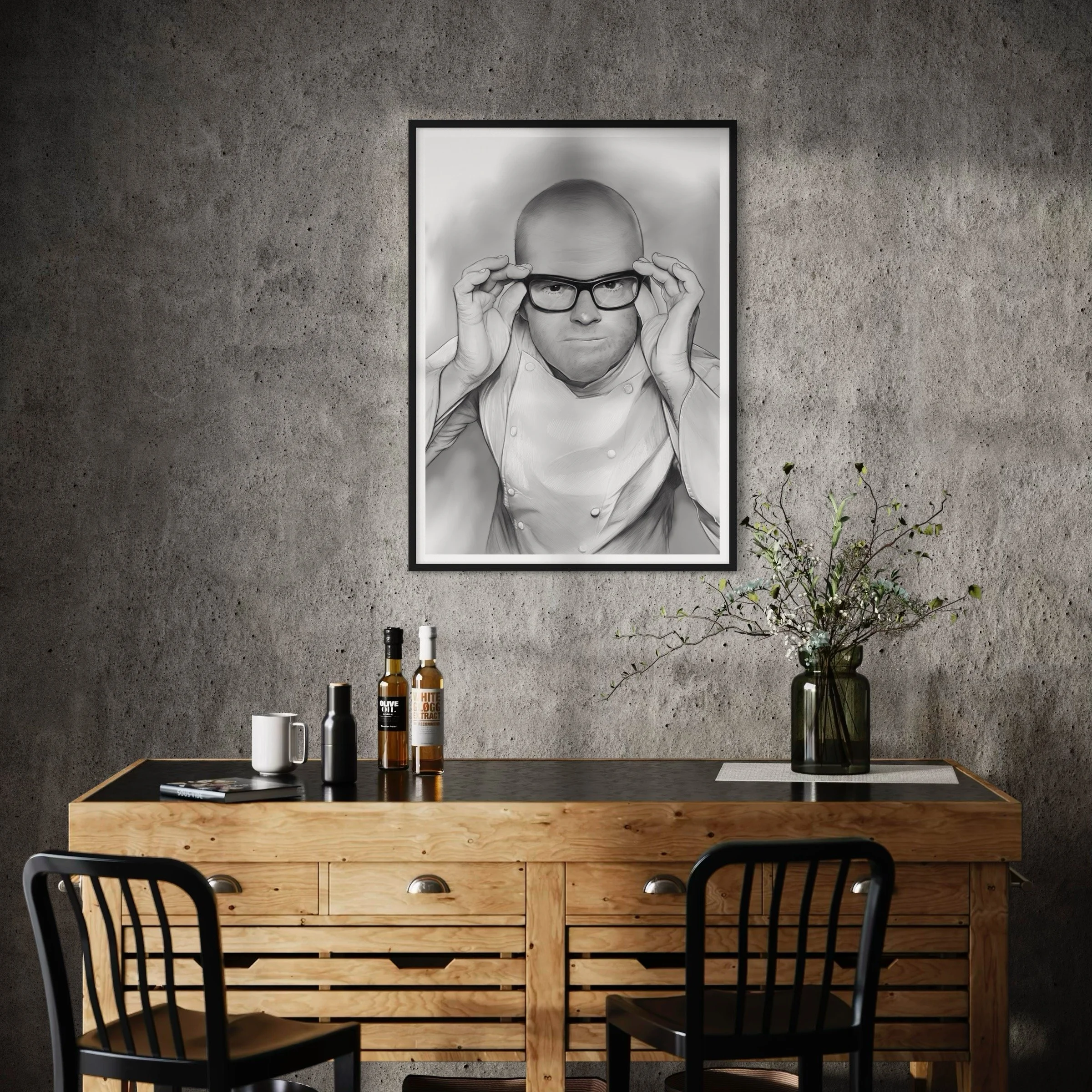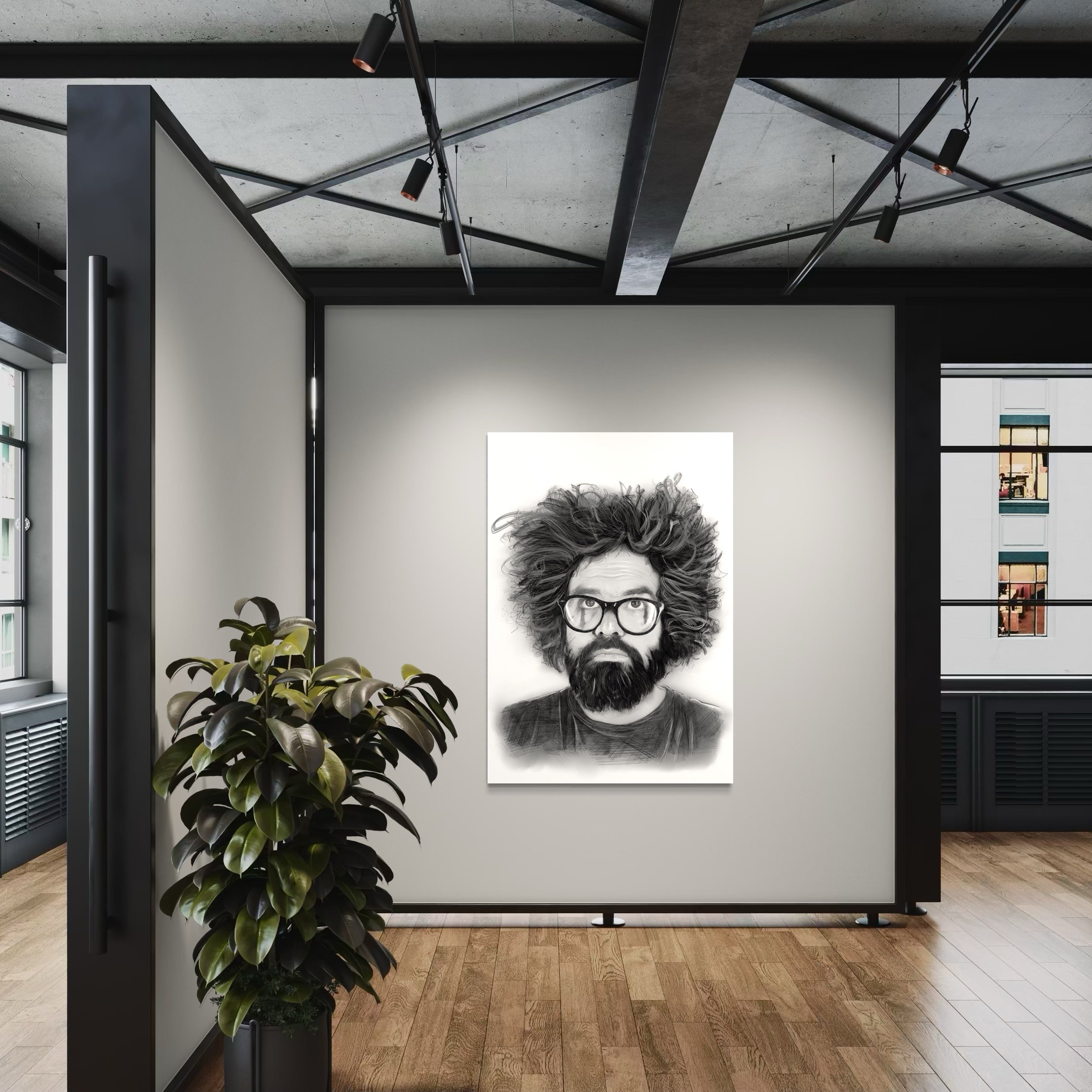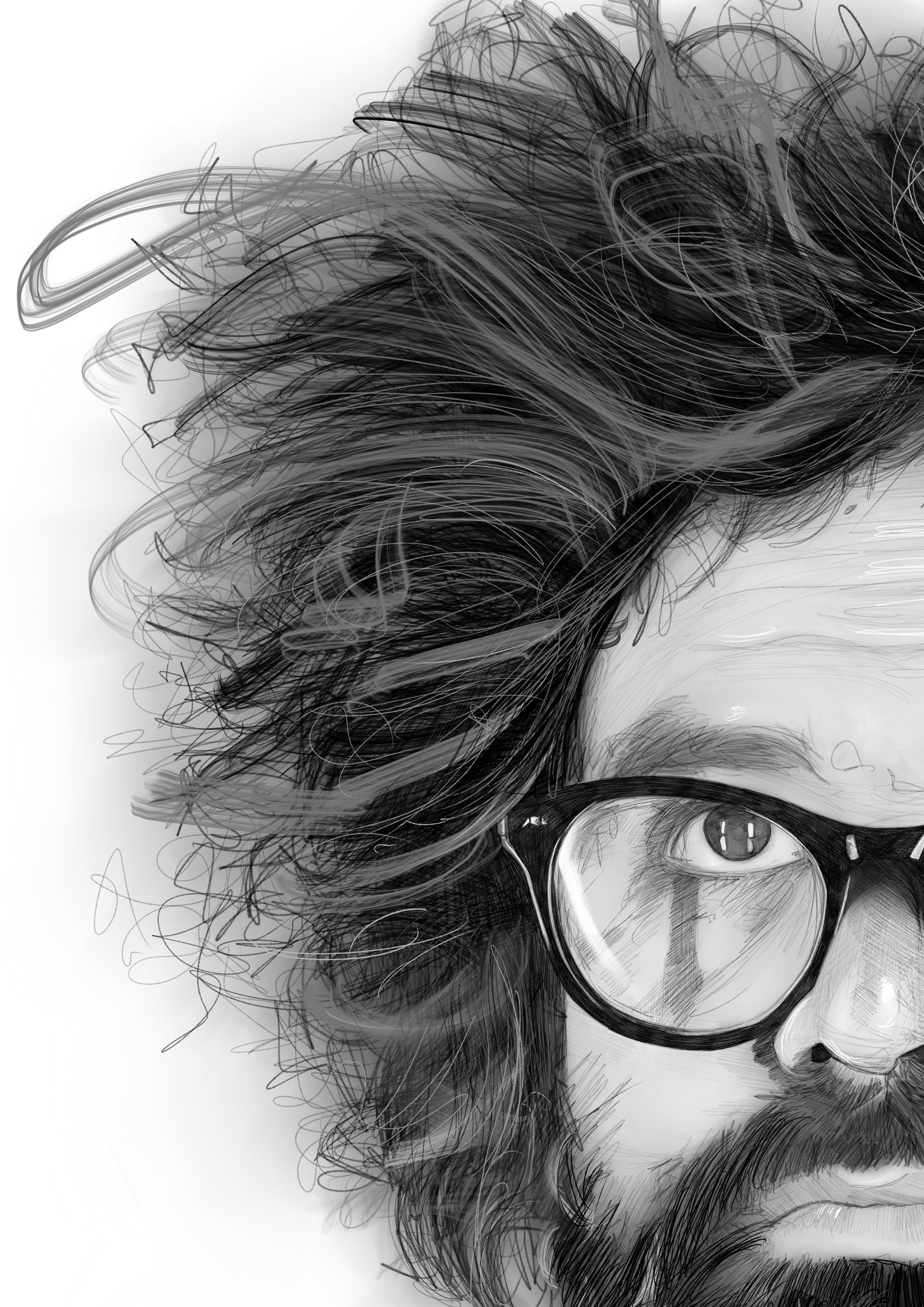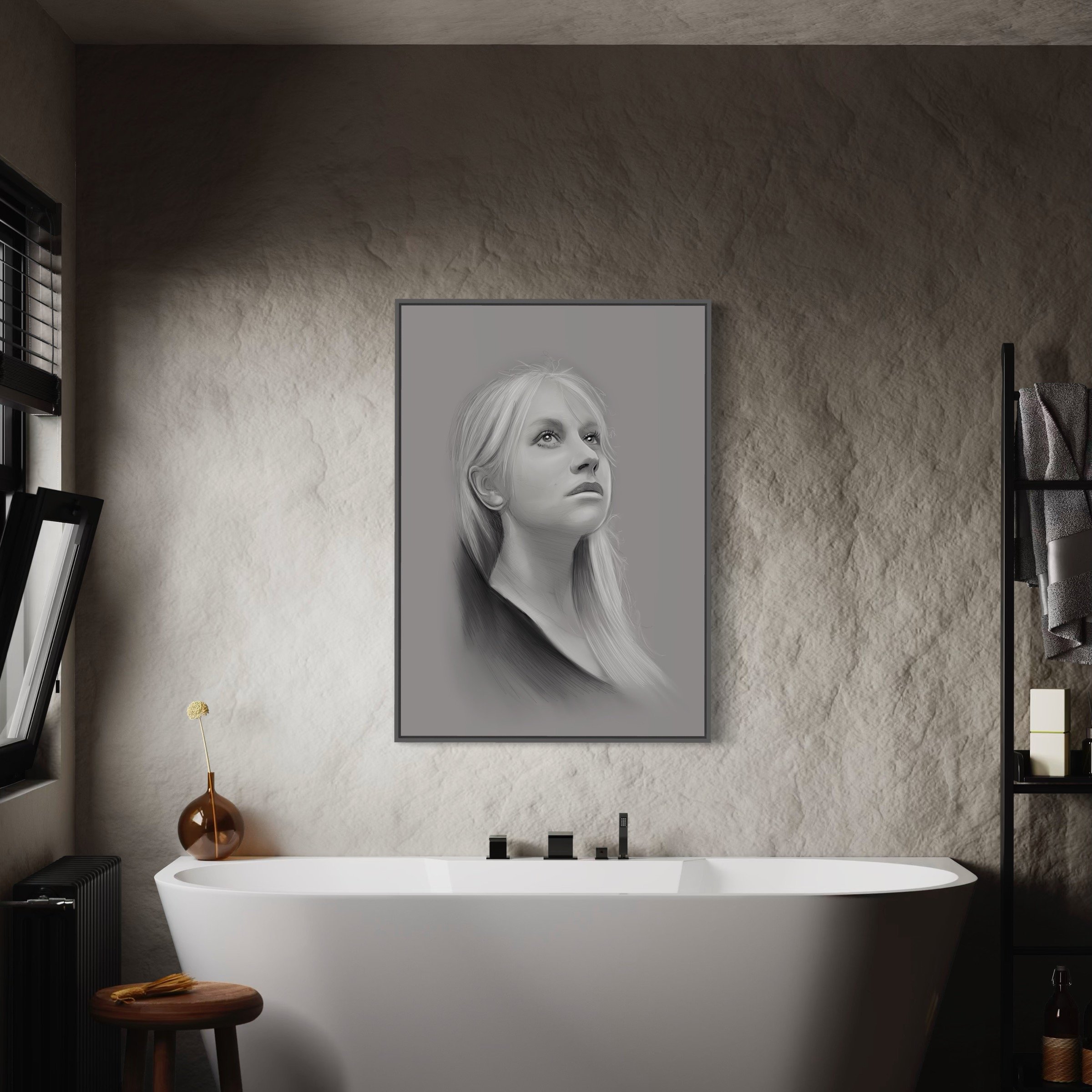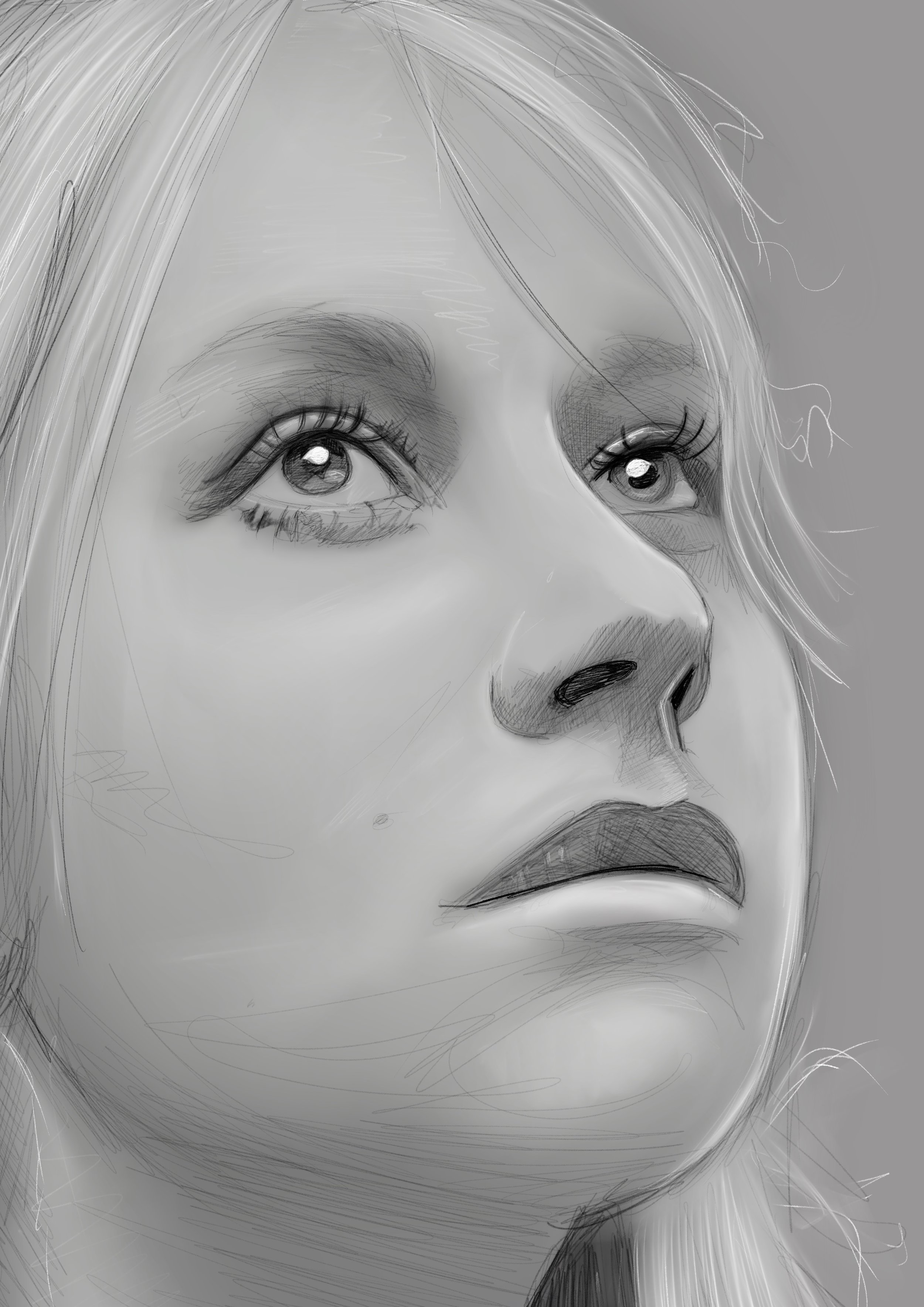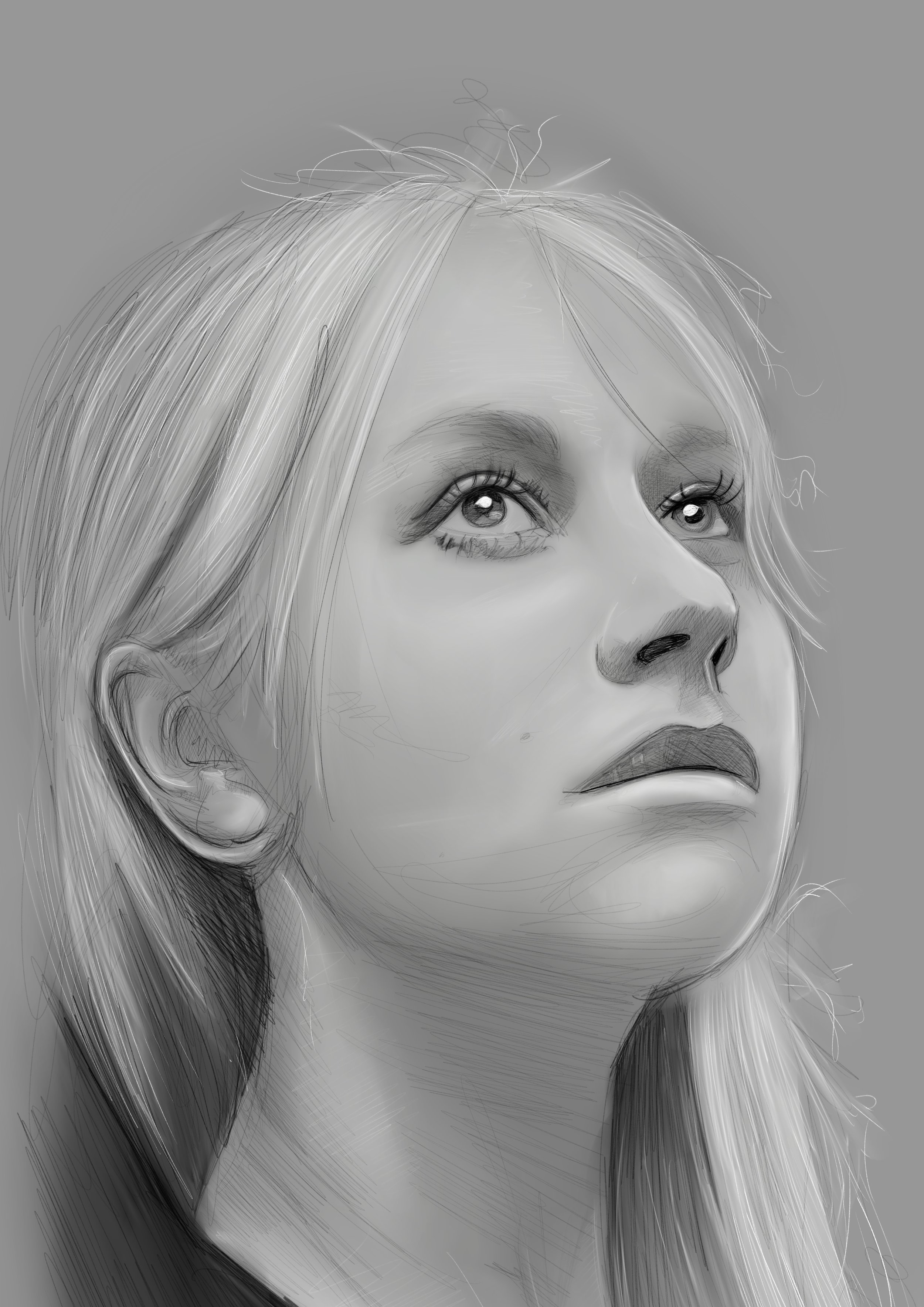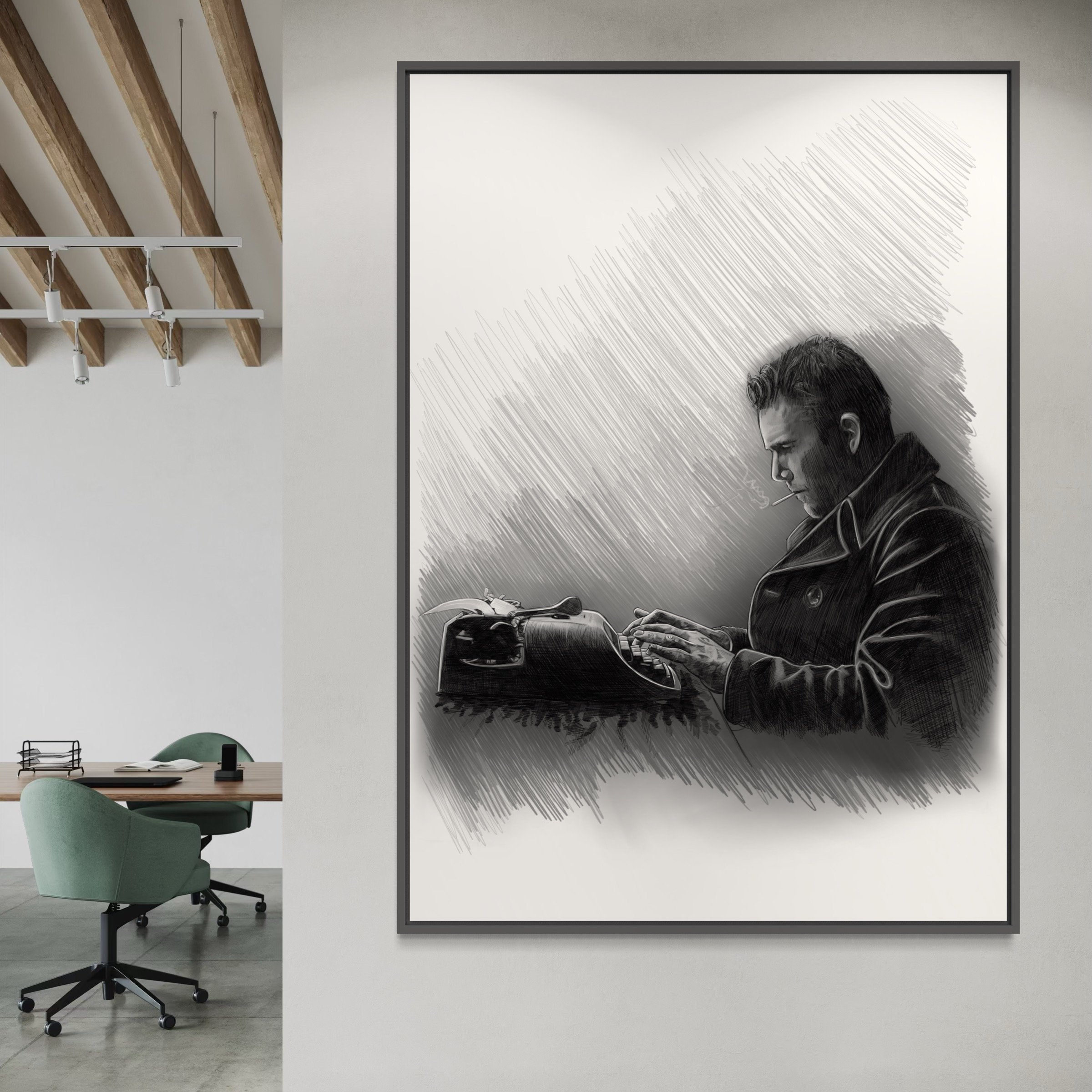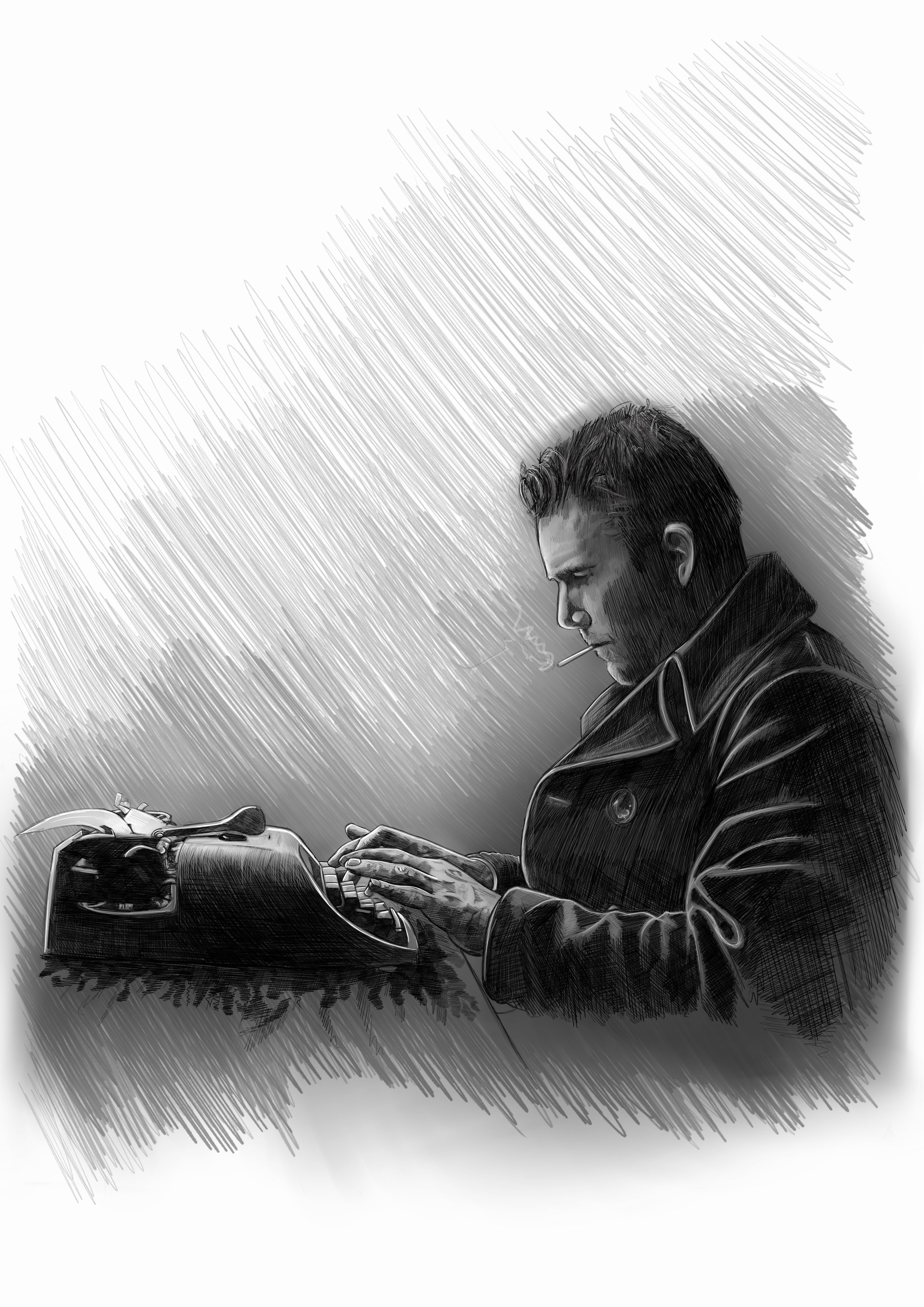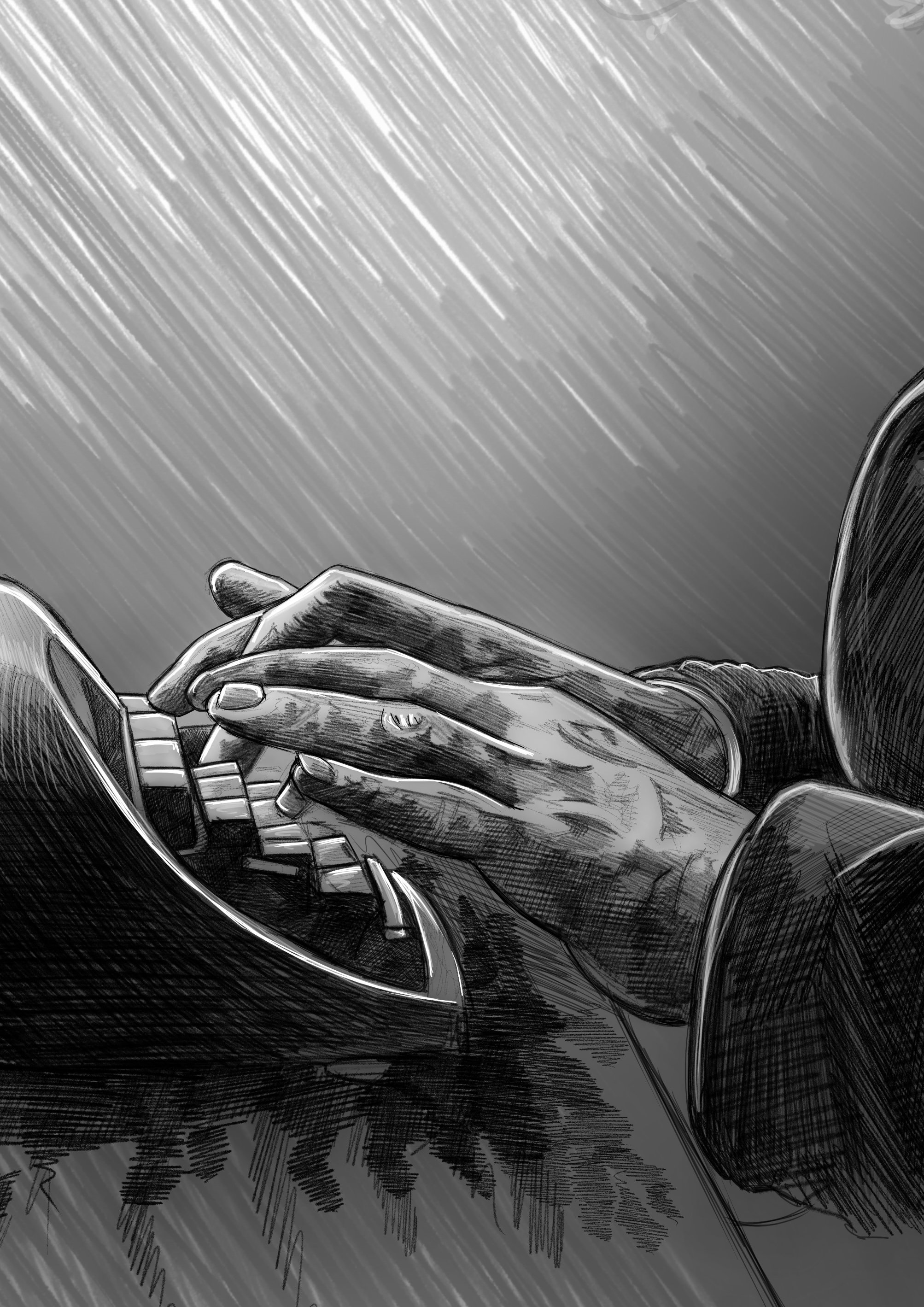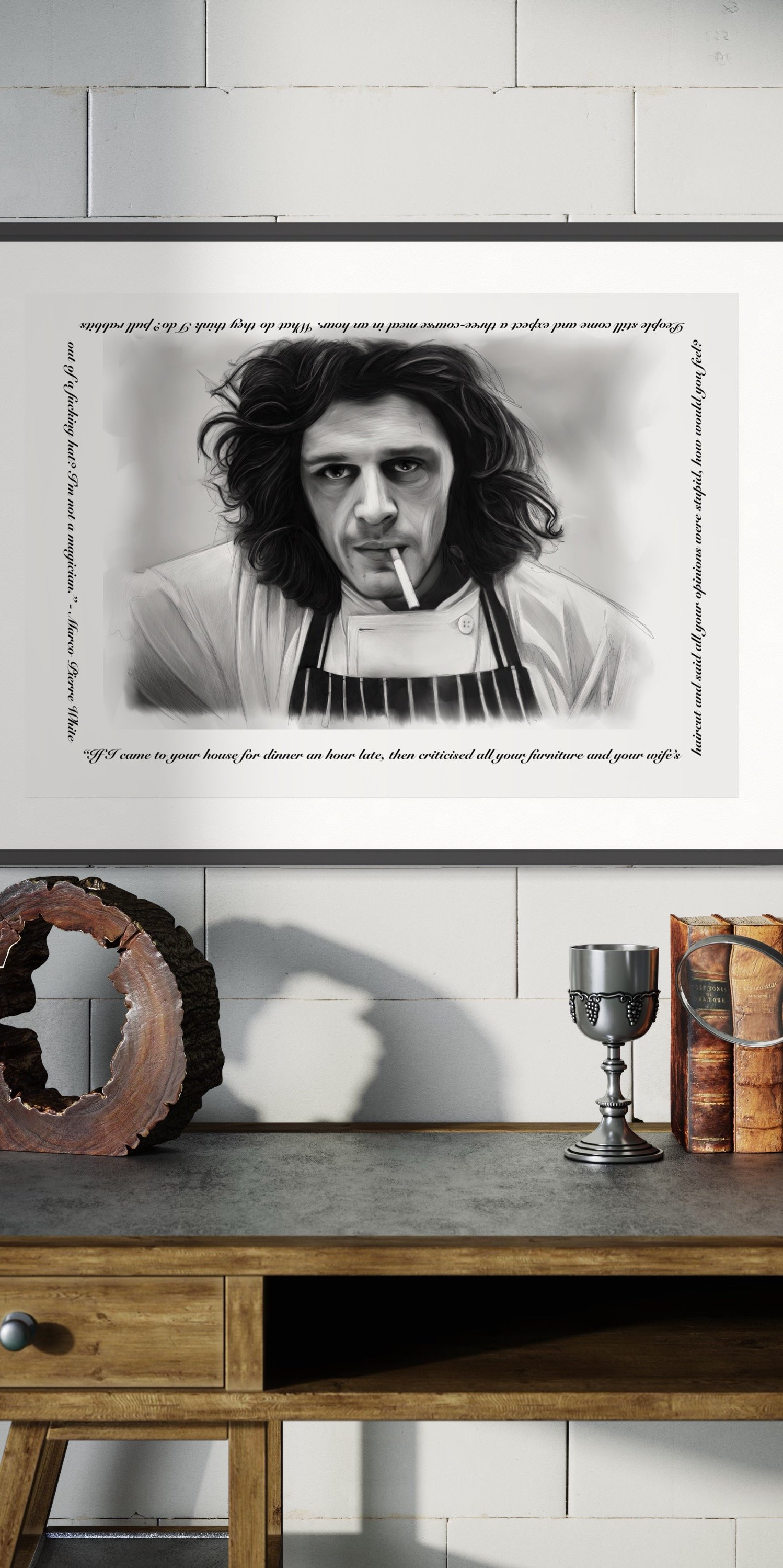 Image 1 of 7
Image 1 of 7

 Image 2 of 7
Image 2 of 7

 Image 3 of 7
Image 3 of 7

 Image 4 of 7
Image 4 of 7

 Image 5 of 7
Image 5 of 7

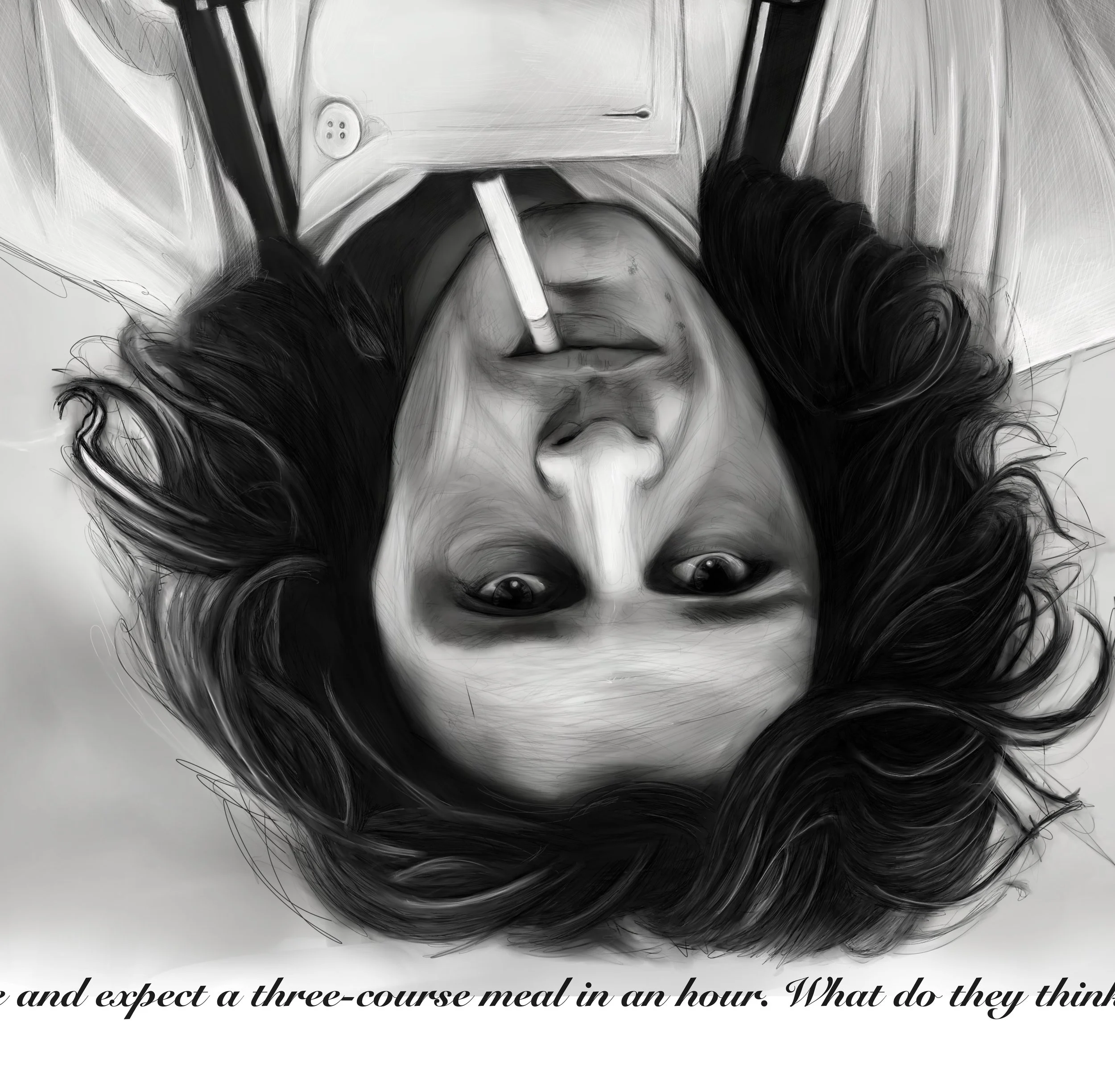 Image 6 of 7
Image 6 of 7

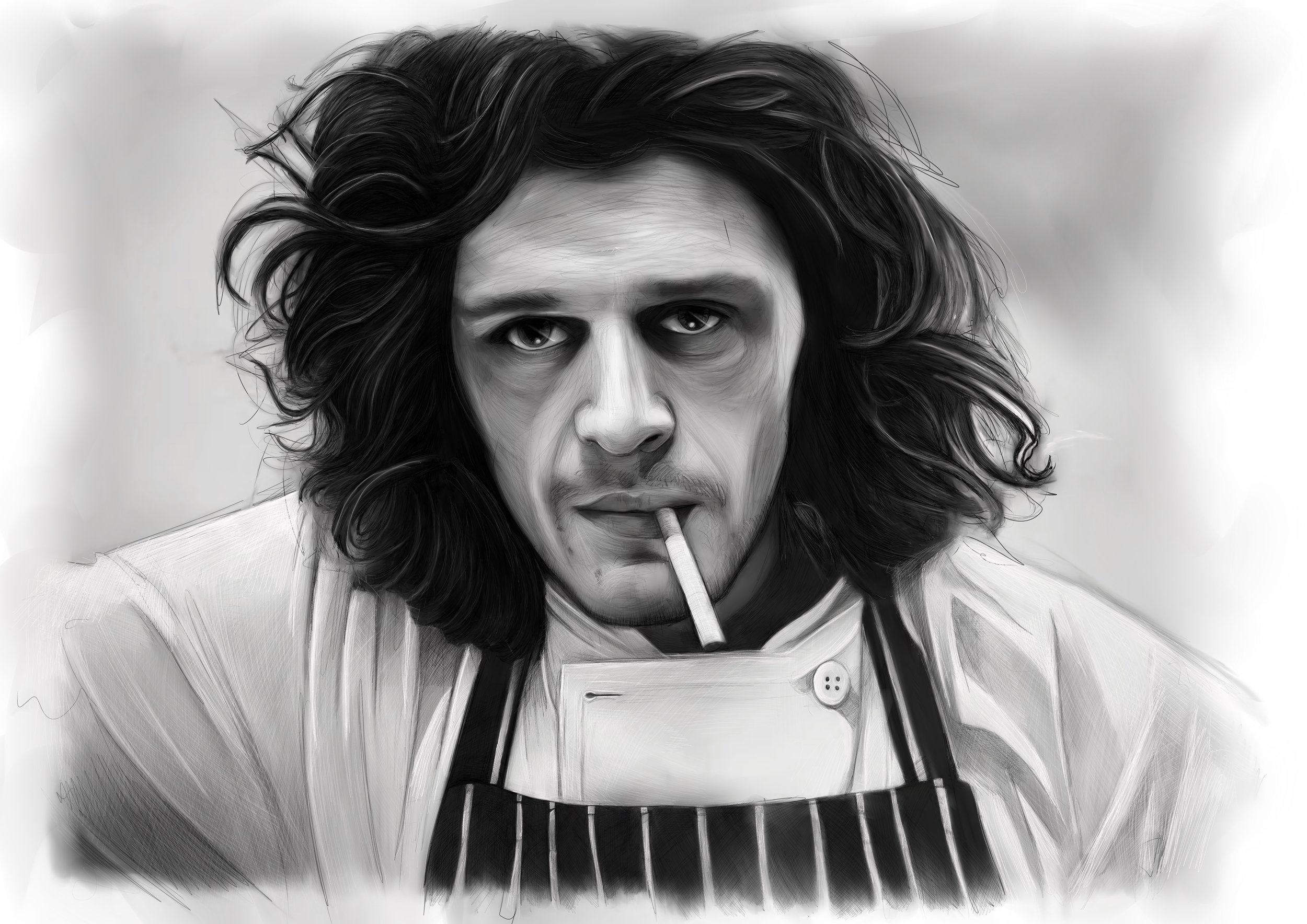 Image 7 of 7
Image 7 of 7








Marco
In the inimitable words of Anthony Bourdain
“ I don’t know if I can adequately convey to you the impact that White Heat had on me, on the chefs and cooks around me, on subsequent generations.
Suddenly, there was life preMarco, and postMarco. This book, around which we’d gathered in a prep area, opening it carefully on a cutting board and examining it, changed everything.
It was 1990 in New York City, and none of us knew who Marco Pierre White was. While some of us might have been dimly aware of great chefs in England, that country’s restaurant scene was held in little – if any – regard. Our role models, the standardbearers of excellence in our craft, were generally pudgy French guys, most of them older than us, none of whom we’d ever consider hanging out with. Most of them lived in a foreign land, far away, where they spoke another language and didn’t like us very much. Few of them looked fuckable. (Though we were, as it turned out, wrong in this assumption: all those short, paunchy, balding French guys actually got laid like Mötley Crüe.)
“But, who was this guy?! This Marco Pierre White?
”We turned the pages with our sweaty fingers, careful not to stain the gorgeous full colour images of classically striking, technically precise, very tastylooking food. We knew these flavours from culinary school, and from our own experiences with the oldschool French, Austrian and/or German apprenticeship-as-meat grinder system, a cycle of abuse that passed as learning one’s trade back in those days. We could imagine what the food in these pictures tasted like – put the ingredients together in our heads – as so many of them made sense.
But, who was this guy?!
This Marco Pierre White?
The brilliant black-and-white photos by Bob Carlos Clarke confused and inspired us. We all had plenty of cookbooks filled with beautiful photos of artfully arranged food, but we’d never before been able to turn the page and find images of a chef who looked like Marco.
He looked like...well...us!
He was skinny like us. We had all learned to despise the idiotic remark, ‘Never trust a skinny chef.’ All the cooks and chefs we knew looked like starved greyhounds, like workers in a labour camp: ferret-thin, sleep-deprived, undernourished, poisoned by alcohol and nicotine and God knows what else after work.
Fat chefs, to our way of thinking, weren’t working hard enough. This guy Marco, he looked like he fucking worked.
And, he didn’t look happy, and we loved that, too. All those French guys, depicted in their dining rooms or kitchens, standing with arms crossed, serene, all-knowing, imperious in front of a gleaming array of copper – they looked happy!
None of US were happy! We didn’t know any chefs who were happy! We didn’t have time to be happy.
What we had time for was work and stress. Marco, unlike any chef we’d ever seen, in any cookbook ever, looked stressed. It was carved into his face. LOOK! He’s smoking, leaning up against the KITCHEN WALL, pulling on that cigarette as if he’s trying to suck that whole thing down in one go. We knew that feeling. We knew how that cigarette tasted. We were grateful to finally see a chef who admitted to stress and exhaustion like us.
But...but...there was even more.
Once we’d absorbed this longhaired, sweaty, stressed-out, exhausted chef who looked like us and probably had half his more attractive customers bent over a sink in the ladies’ room, our colleague who’d brought the book in would draw our attention to the details, the remarkable admissions and assertions in the text.
Three Michelin stars! Awesome. Especially for a guy so close to most of us in age. But then, there, in the first paragraph, after the admonition that if we’re looking to read White Heat in order to ‘cook well’ we can ‘save [our] money’ and pretty much fuck off, is the shocking, bold statement of fact that
“I haven’t even been to France yet.’
What??!!
Most of us with any hope of ever becoming a chef, of ever doing the kind of food and having the kind of career that would merit a cookbook, were aimed at the great kitchens of France. That’s where you went. (Or at very least you lied about it.)
And if that wasn’t enough, there was this absolutely extraordinary passage:
‘Any chef who says he does it for love is a liar. At the end of the day it’s all about money. I never thought I would ever think like that but I do now. I don’t enjoy it. I don’t enjoy having to kill myself six days a week to pay the bank...If you’ve got no money you can’t do anything; you’re a prisoner of society. At the end of the day it’s just another job. It’s all sweat and toil and dirt: it’s misery.’
“Ten years before Kitchen Confidential supposedly ‘ripped the lid off’ the business, White Heat brimmed with casual admissions of what we all knew as chefs.
”Ten years before my book Kitchen Confidential supposedly ‘ripped the lid off’ the grim realities of the restaurant business, White Heat brimmed with casual admissions of what we all knew as chefs: that it was a hard, brutal, repetitive business. That even if we could afford it, we were unlikely to be welcome in our dining rooms. That we were powerless without money. That only by being extraordinary – or at least convincing people that we were extraordinary – could we hope to live like our customers.
White Heat depicted a great chef who was heading straight at that thing we’d all seen: burn out. He knew it. Was conflicted by it. But it wasn’t slowing him down. He had somewhere to go and he’d figure it out when he got there.
With White Heat, Marco Pierre White gave us all a voice, gave us hope, a new template for survival. We were no longer alone in the world, a despised, underpaid minority, reeking of garlic and salmon. Soon, people would become interested in us. Our customers would actually be curious about our opinions on what they should eat. Eventually, they would want to fuck us – and brag about it to their friends.
This book gave us power.
It all started here. “ - Anthony Bourdain
Drawn with CaranD’ache pencils and faber and castell inks and fine liners on watercolour paper.
Gicleé fine art printed on Hahnemuhle Agave and cotton paper 290gsm.
Available in 3 sizes and with 2 options
Original artwork
Annotated with the famous “ if I came to dinner ….” Quote
Numbers are limited and when sold out, will never be available again
In the inimitable words of Anthony Bourdain
“ I don’t know if I can adequately convey to you the impact that White Heat had on me, on the chefs and cooks around me, on subsequent generations.
Suddenly, there was life preMarco, and postMarco. This book, around which we’d gathered in a prep area, opening it carefully on a cutting board and examining it, changed everything.
It was 1990 in New York City, and none of us knew who Marco Pierre White was. While some of us might have been dimly aware of great chefs in England, that country’s restaurant scene was held in little – if any – regard. Our role models, the standardbearers of excellence in our craft, were generally pudgy French guys, most of them older than us, none of whom we’d ever consider hanging out with. Most of them lived in a foreign land, far away, where they spoke another language and didn’t like us very much. Few of them looked fuckable. (Though we were, as it turned out, wrong in this assumption: all those short, paunchy, balding French guys actually got laid like Mötley Crüe.)
“But, who was this guy?! This Marco Pierre White?
”We turned the pages with our sweaty fingers, careful not to stain the gorgeous full colour images of classically striking, technically precise, very tastylooking food. We knew these flavours from culinary school, and from our own experiences with the oldschool French, Austrian and/or German apprenticeship-as-meat grinder system, a cycle of abuse that passed as learning one’s trade back in those days. We could imagine what the food in these pictures tasted like – put the ingredients together in our heads – as so many of them made sense.
But, who was this guy?!
This Marco Pierre White?
The brilliant black-and-white photos by Bob Carlos Clarke confused and inspired us. We all had plenty of cookbooks filled with beautiful photos of artfully arranged food, but we’d never before been able to turn the page and find images of a chef who looked like Marco.
He looked like...well...us!
He was skinny like us. We had all learned to despise the idiotic remark, ‘Never trust a skinny chef.’ All the cooks and chefs we knew looked like starved greyhounds, like workers in a labour camp: ferret-thin, sleep-deprived, undernourished, poisoned by alcohol and nicotine and God knows what else after work.
Fat chefs, to our way of thinking, weren’t working hard enough. This guy Marco, he looked like he fucking worked.
And, he didn’t look happy, and we loved that, too. All those French guys, depicted in their dining rooms or kitchens, standing with arms crossed, serene, all-knowing, imperious in front of a gleaming array of copper – they looked happy!
None of US were happy! We didn’t know any chefs who were happy! We didn’t have time to be happy.
What we had time for was work and stress. Marco, unlike any chef we’d ever seen, in any cookbook ever, looked stressed. It was carved into his face. LOOK! He’s smoking, leaning up against the KITCHEN WALL, pulling on that cigarette as if he’s trying to suck that whole thing down in one go. We knew that feeling. We knew how that cigarette tasted. We were grateful to finally see a chef who admitted to stress and exhaustion like us.
But...but...there was even more.
Once we’d absorbed this longhaired, sweaty, stressed-out, exhausted chef who looked like us and probably had half his more attractive customers bent over a sink in the ladies’ room, our colleague who’d brought the book in would draw our attention to the details, the remarkable admissions and assertions in the text.
Three Michelin stars! Awesome. Especially for a guy so close to most of us in age. But then, there, in the first paragraph, after the admonition that if we’re looking to read White Heat in order to ‘cook well’ we can ‘save [our] money’ and pretty much fuck off, is the shocking, bold statement of fact that
“I haven’t even been to France yet.’
What??!!
Most of us with any hope of ever becoming a chef, of ever doing the kind of food and having the kind of career that would merit a cookbook, were aimed at the great kitchens of France. That’s where you went. (Or at very least you lied about it.)
And if that wasn’t enough, there was this absolutely extraordinary passage:
‘Any chef who says he does it for love is a liar. At the end of the day it’s all about money. I never thought I would ever think like that but I do now. I don’t enjoy it. I don’t enjoy having to kill myself six days a week to pay the bank...If you’ve got no money you can’t do anything; you’re a prisoner of society. At the end of the day it’s just another job. It’s all sweat and toil and dirt: it’s misery.’
“Ten years before Kitchen Confidential supposedly ‘ripped the lid off’ the business, White Heat brimmed with casual admissions of what we all knew as chefs.
”Ten years before my book Kitchen Confidential supposedly ‘ripped the lid off’ the grim realities of the restaurant business, White Heat brimmed with casual admissions of what we all knew as chefs: that it was a hard, brutal, repetitive business. That even if we could afford it, we were unlikely to be welcome in our dining rooms. That we were powerless without money. That only by being extraordinary – or at least convincing people that we were extraordinary – could we hope to live like our customers.
White Heat depicted a great chef who was heading straight at that thing we’d all seen: burn out. He knew it. Was conflicted by it. But it wasn’t slowing him down. He had somewhere to go and he’d figure it out when he got there.
With White Heat, Marco Pierre White gave us all a voice, gave us hope, a new template for survival. We were no longer alone in the world, a despised, underpaid minority, reeking of garlic and salmon. Soon, people would become interested in us. Our customers would actually be curious about our opinions on what they should eat. Eventually, they would want to fuck us – and brag about it to their friends.
This book gave us power.
It all started here. “ - Anthony Bourdain
Drawn with CaranD’ache pencils and faber and castell inks and fine liners on watercolour paper.
Gicleé fine art printed on Hahnemuhle Agave and cotton paper 290gsm.
Available in 3 sizes and with 2 options
Original artwork
Annotated with the famous “ if I came to dinner ….” Quote
Numbers are limited and when sold out, will never be available again
A4 fine art Gicleé print £65 + p&p
A3 fine art Gicleé print £110 + p&p
A2 fine art Gicleé print £180 + p&p


